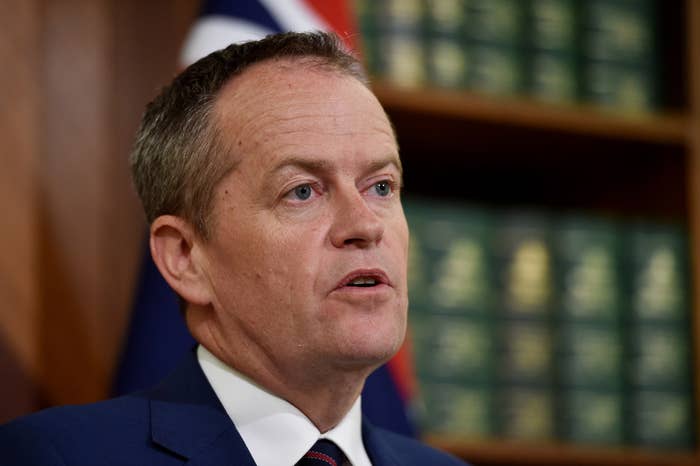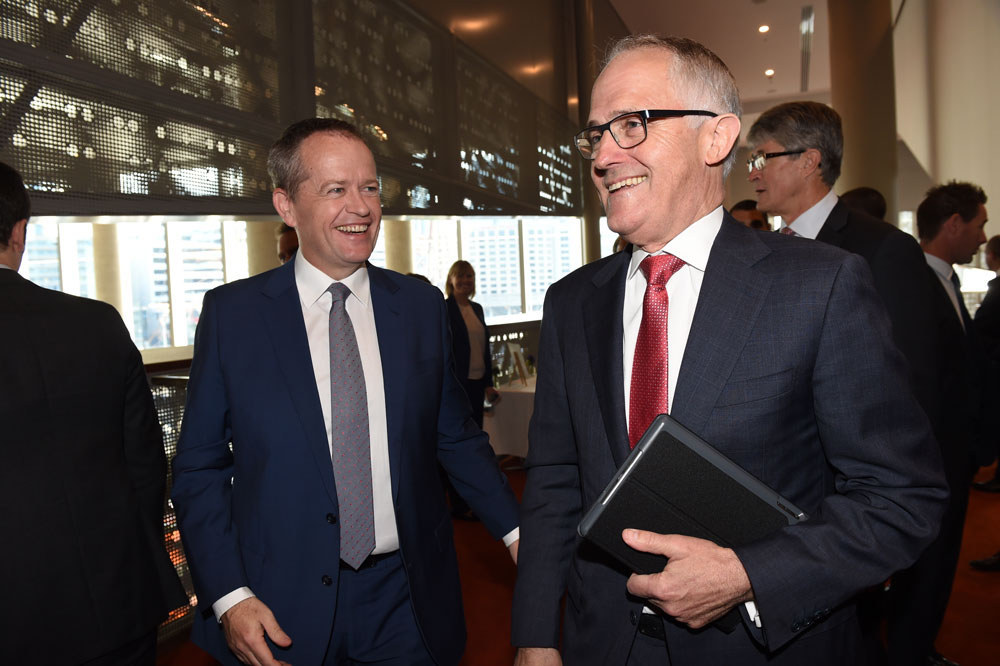Opposition leader Bill Shorten has used Monday's public holiday to declare that Labor is ready to fight an election over penalty rates as the government signals that it is preparing to shift its position on workers' awards.

Speaking in Sydney, Shorten said his party "accepts the challenge" from the Turnbull government for a fight on penalty rates.
The new minister for employment, Senator Michaelia Cash, last week appeared to open the door to cutting weekend penalty rates, telling the ABC the government would take the issue to the next election.
Cash said there was significant evidence that penalty rates for work performed on weekends and public holidays deters service industries like cafes and restaurants from opening their doors on weekends.
"If there is a good case for sensible and fair changes to bring balance to the Fair Work framework, these will be clearly outlined by the government and taken to the next election to seek a mandate from the Australian people," she said.
Cash was also careful to note that penalty rates are set by the Fair Work Commission and not the government.
Finance minister Mathias Cormann appears to have backed Cash over the weekend, saying the government would be considering its position ahead of the next election.

A draft Productivity Commission report released in August recommended bringing Sunday penalty rates into line with Saturday rates in order to increase employment and expand working hours.
The government's changing tune has received the enthusiastic backing of business groups such as the Australian Chamber of Commerce and Industry (ACCI).
"Too many businesses are struggling to open on weekends and public holidays because of the impact of excessive penalty rates. Small business, particularly in the retail and hospitality sectors, are seeking change. Shifting social norms mean the current conception of sociable work hours is outdated," ACCI CEO Kate Carnell said last week.
"There is no desire to abolish penalty rates. Instead, we need to discuss whether the current level of rates is appropriate. More than 750,000 Australians are unemployed, including more than 250,000 young people. They should be at the forefront of our thinking on this issue."
But Shorten says that for many families, penalty rates can be the difference between sending the kids to private school or being able to pay off a mortgage.

"Labor is not out of touch with how people make their money," he said. "[Penalty rates] go towards the quality of life. Why is it that Mr Turnbull's Liberals only worry about the top end of town and forget millions of other Australians? Penalty rates are what make the difference and in the quality of life for a lot of working Australians."
But Turnbull has refused to buy in to the debate, telling reporters on Monday that he would reserve his judgement until the Productivity Commission hands down its final report.
